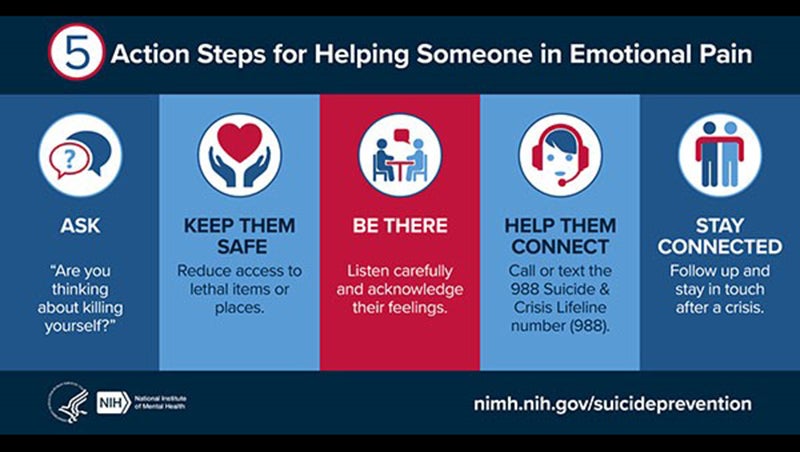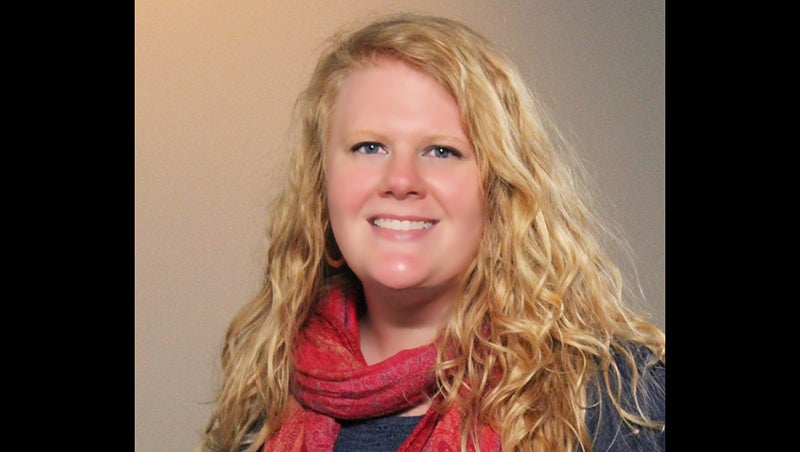Suicide Prevention Awareness Month: Dare County raising awareness, ending stigma about suicide
Published 9:06 am Sunday, September 11, 2022
|
Getting your Trinity Audio player ready...
|
By Judy Stiles
September is Suicide Prevention Awareness Month and Dare County mental health providers are coming together to raise awareness about the importance of suicide prevention. The month-long campaign aims to reduce stigma around suicide and ensure that anyone struggling with suicidal thoughts or who has a loved one at risk for suicide knows where to turn.
Suicide is intentionally ending one’s life and a suicide attempt is harming one’s self with the intention of dying, but not dying.
People from all genders, socioeconomic statuses, ages, ethnicities and religious affiliations die from suicide. According to the Centers for Disease Control and Prevention, in 2020 45,979 people took their own life, an estimated 1.2 million attempted suicide, 3.2 million planned a suicide attempt and 12.2 million American adults seriously thought about suicide.
The North Carolina State Center for Health Statistics reports that 2,679 people visited an emergency department from January to March 2022 due to self-inflicted injuries. Suicide is the second leading cause of death for youth in North Carolina ages 10 to 18 and the third leading cause of death for those ages 19 to 34. Suicide is the eighth leading cause of death in Dare County. Dare County’s 2020 death rate for suicide was 44 percent higher than the rate for North Carolina.
Kelly Nettnin, Dare County’s Health and Human Services health education and outreach supervisor and chairwoman for the Breaking Through Task Force, has more than 15 years of service as a Dare County mental health provider. She began as a substance abuse worker and currently oversees a number of mental health initiatives. Nettnin is a certified youth mental health first aid trainer who provides training on intervention and assistance for people who are depressed, anxious or at risk for suicide.
Nettnin shared, “I am someone who lives with anxiety. I have mental health challenges that I work through on a personal level. I feel more connected and see the value of helping people live with mental health concerns. I am able to help in ways that I didn’t receive help.”
Often there is concern that talking about suicide may push someone to have suicidal thoughts but Nettnin stresses, “In most circumstances, using the word suicide is a relief for someone who is considering suicide. These discussions may relieve someone who is thinking about suicide and provide an outlet to talk about feelings.”
The stigma of mental health disorders can cause shame and guilt. “People who have suicidal ideation, or die from suicide, are not bad people,” said Nettnin. “These people reached a point in their life where their pain was unbearable.”
Prior to COVID-19 the task force rolled out a suicide prevention awareness campaign called “Chalk About It.” Organizations were provided sidewalk chalk to write positive messages about suicide prevention. Some resisted using the word “suicide.” This helped the task force recognize the need for education and awareness about suicide and that it is a problem in Dare County.
This year, the group is working to expand the outreach and will use social media platforms to share messages on suicide prevention throughout September. The group will also produce a documentary-style video featuring individuals who have attempted suicide or have lost a loved one. The video will be aired at a special town hall meeting on Tuesday, September 27 at 5:30 p.m. at the First Flight High School, located at 100 Veterans Dr. in Kill Devil Hills.
Following the video presentation, there will be a question-and-answer discussion about what went into making the documentary. Representatives from Dare County’s mental health providers Mobile Crisis; PORT Health; Trillium Health Resources; the Dare County health director; the documentary videographer; and individuals who shared their experiences on the documentary are expected to make up the panel.
After the event, the video will be available on darenc.com, breakthestigmaobx.com and savinglivesobx.com and the agencies’ respective social media platforms.
When asked what stood out the most about this year’s suicide prevention project, Nettnin replied “I have a new respect for the individuals who came forward to share their stories. It is brave to talk about things that make us vulnerable.”
Individual stories, feelings and experiences are different; however, the common connection is everyone feels, or has felt, hurt. Help is available. No one has to suffer alone.
The following resources are available for those who need help:
- Dare County Health & Human Services provides the Emotional Support Line at 252-473-8216, from 9 a.m. to 3 p.m. on Tuesday and Thursday for anyone struggling who wants to talk to someone.
- PORT Health is a nonprofit treatment program that assists individuals and families dealing with substance use and mental health challenges. PORT can be reached at 252-441-2324
- Trillium Health Resources connects people with providers. The 24-Hour Access to Care line is available at 877-685-2415.
- Mobile Crisis is available 24/7 and can be accessed at 866-437-1821.
- Crisis Chat can be helpful to those dealing with stress and anxiety. Although Crisis Chat was developed for youth, it can be accessed by, and helpful to, people of all ages by going to the “Integratedfamilyservices.net” website and clicking on the “chat with us” link.
In July 2022, U.S. Congress introduced a new three-digit telephone number, 9-8-8, to make it easier for anyone in a mental health crisis to get immediate assistance. The crisis hotline replaced the National Suicide Prevention Lifeline’s 11-digit phone number. Trained counselors answer 24/7. The service is free and confidential and can be accessed by telephone, text messaging or by chat at 988lifeline.org. The service is available to a person in crisis or families/friends who need support about the mental health of their loved ones.
In life-threatening situations, people should call 9-1-1.







